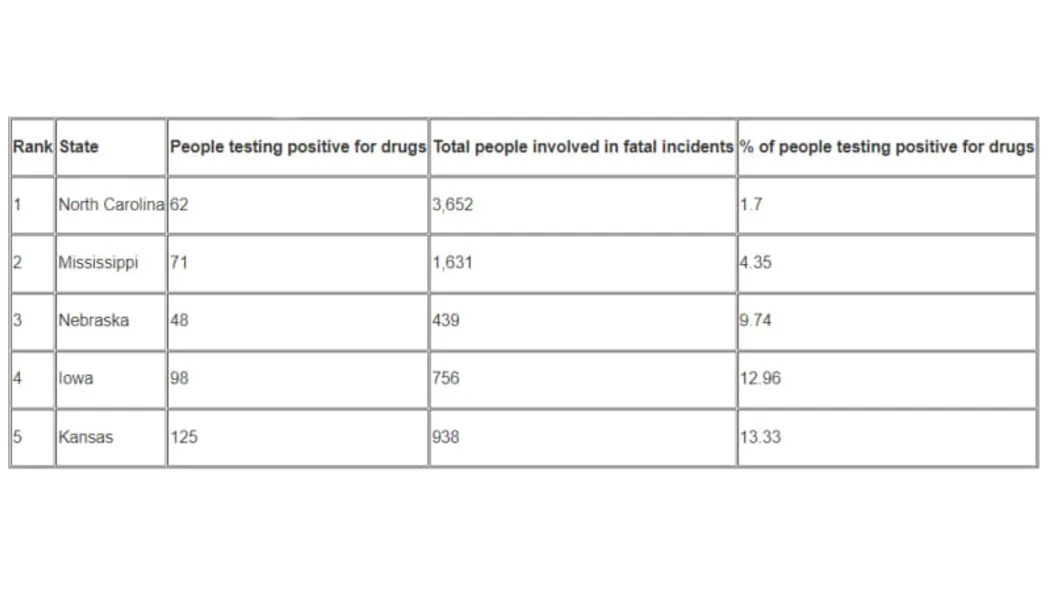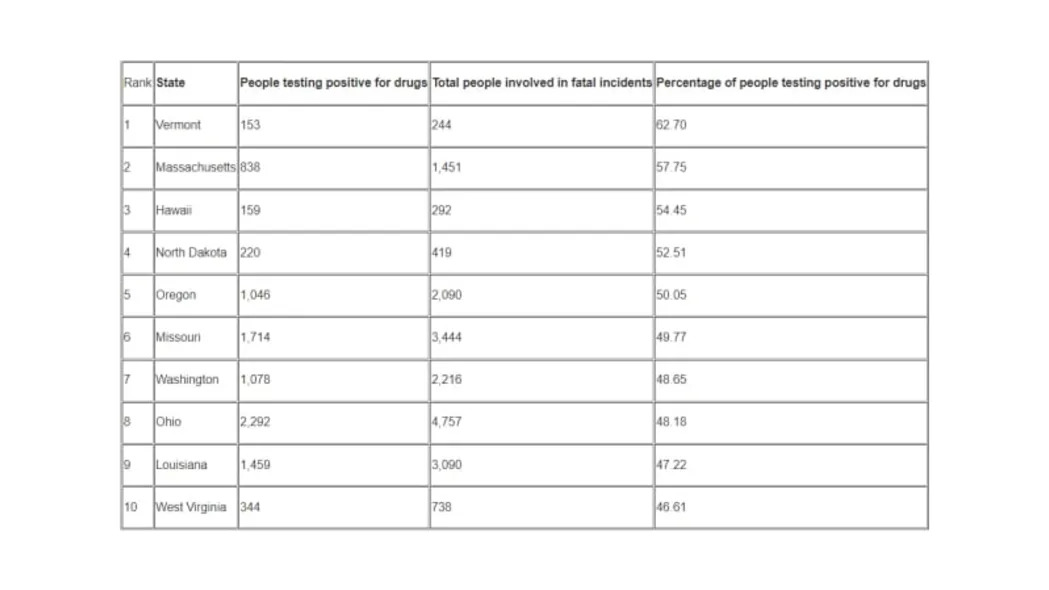A new study has concluded that Vermont tops the list of states with the highest percentage of fatal car crashes in which someone tested positive for drug use. The study by the Jackman Law Firm of Tacoma analyzed data from the Fatality Analysis Reporting System within the National Highway Traffic Safety Administration (NHTSA).
It showed that in Vermont, 62.7% of people — specifically, 153 out of 244 — in fatal crashes tested positive for drugs. Of that number, 81 were found to be under the influence of drugs that were not specified in the report, and 26 were positive for Delta 9 and 8 of benzoylecgonine, which is contained in cocaine.
A question mark over the data has to do with the fact it does not specify what “people” were under the influence. A spokeswoman for the law firm confirmed that they may have been drivers, passengers in a vehicle, pedestrians who may have been injured, or others. We can only assume that if law enforcement drug-tested someone in these crashes, it was typically the driver, but we can’t be sure.
In second place in the study was Massachusetts, with 57.75% of crashes involving a positive drug test. Out of the 1,451 people involved in a fatal accident in 2021, 838 tested positive for drugs. Among the most common drugs detected in Massachusetts were cannabinoids and Delta 9.
Hawaii was third, with 54.75% involved in a crash testing positive for drugs. In 2021, the NHTSA reported 292 people involved in the state, 159 of whom tested positive for one or more types of drugs. Methamphetamine, THC and Delta 9 were the three most common drugs detected.
North Dakota was reported fourth, and Oregon fifth.
On the opposite side of the report, North Carolina, Mississippi and Nebraska were the three states with the lowest number of people involved in drug-related incidents. Respectively, the states registered 1.7%, 4.35%, and 9.74% of people involved in a fatal crash.
According to the National Institute on Drug Abuse, the effects of marijuana on drivers include an increase in lane weaving, poor reaction time, and altered attention to the road. Some studies, the agency says, report that opioids can cause drowsiness and impair thinking and judgment. Other studies have found that being under the influence of opioids while driving can double your risk of having a crash.
Said Chris Jackson of the law firm, “The opioid epidemic has been particularly impactful, leading to increased overdose deaths and strains on public health resources in all 50 states. However,” he added, “as the data shows, in certain areas, the problem seems to be deeper and more concerning.”
A recent study of NHTSA data also listed the worst states for alcohol-related fatal car crashes.
10 states with the most drug-related fatal crashes
5 states with the fewest drug-related car crashes









